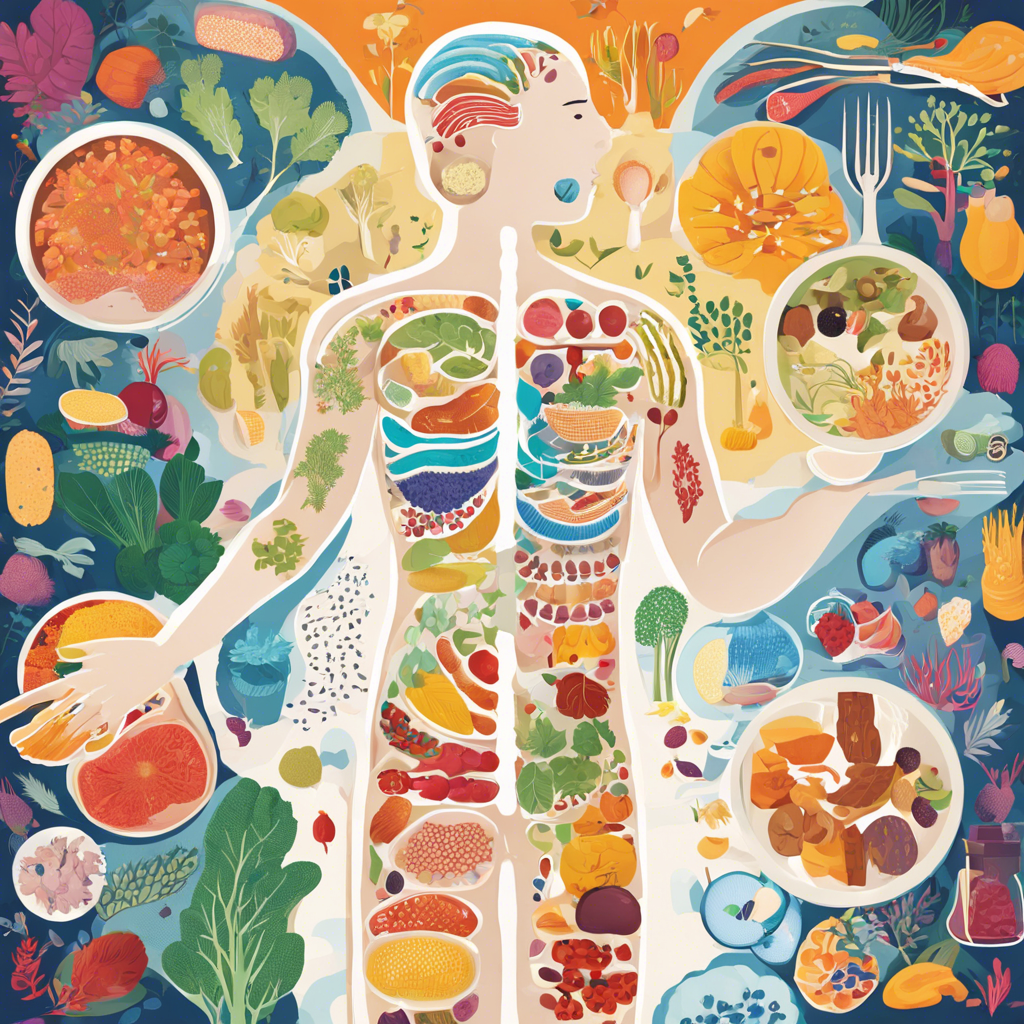The gut, often referred to as our “second brain,” is home to a complex ecosystem of microorganisms known as the microbiome. This diverse community of bacteria, fungi, and viruses plays a crucial role in maintaining our overall health and well-being. In recent years, a revolution in our understanding of the gut microbiome has occurred, shedding light on the far-reaching impacts it has on our bodies and minds.
The gut microbiome has been linked to a multitude of aspects of our health. For instance, it aids in digestion and nutrient absorption, supports our immune system, and even influences our mood and mental health. An imbalance in the microbiome can have negative consequences for our well-being, contributing to issues such as digestive disorders, inflammation, and mental health conditions like anxiety and depression.
One of the key ways to maintain a healthy gut microbiome is through our diet. The foods we eat provide fuel not only for our bodies but also for the trillions of microbes that call our gut home. A diverse and plant-rich diet is often recommended to support a diverse and robust microbiome. Fiber-rich foods, in particular, act as prebiotics, providing nourishment for beneficial bacteria. Think of it as feeding your gut bugs! Prebiotic fibers are found in abundance in foods like asparagus, leeks, onions, garlic, and bananas.
In addition to prebiotic foods, probiotic foods can also give our gut a boost. Probiotics are live microorganisms that, when consumed, offer health benefits. Fermented foods are an excellent source of natural probiotics. Try incorporating yogurt, kefir, sauerkraut, kimchi, or miso into your diet to introduce a variety of beneficial bacteria and support a healthy gut ecosystem.
It’s not just about the foods we eat, though. Our lifestyle choices, including sleep, exercise, and stress management, also impact the gut. For example, chronic stress can disrupt the balance of our microbiome, leading to potential issues with digestion and immune function. Prioritizing self-care and stress management techniques, such as meditation or regular exercise, can help maintain a healthy gut-brain axis.
The gut health revolution is also driving exciting developments in medical research. Scientists are exploring the potential of fecal microbiota transplants (FMT) to treat a range of conditions, from Clostridioides difficile infections to inflammatory bowel disease. FMT involves transferring stool from a healthy donor into a recipient’s gut to restore a healthy balance to their microbiome. While it may sound unconventional, FMT has shown promising results in treating certain gut disorders.
The revolution in gut health understanding also extends to the world of psychiatry. The gut-brain axis is a bidirectional communication pathway between the enteric nervous system (the “brain” of the gut) and the central nervous system. This connection means that our gut health can influence our mental health and vice versa. As a result, researchers are exploring the potential of targeting the microbiome to support mental well-being, with early studies showing positive outcomes.
The gut microbiome also plays a role in our metabolism and weight management. The bacteria in our gut can influence how we extract energy from food, and certain microbes have been linked to a higher risk of obesity. Research in this area could lead to innovative approaches to weight management and metabolic health, targeting the microbiome to support a healthy weight.
The applications of this revolution in gut health understanding are vast. Personalized nutrition plans that take into account an individual’s unique microbiome are already being explored. The idea is that by tailoring your diet to your specific gut profile, you can optimize your health and well-being. We are also seeing the development of innovative diagnostic tools and supplements aimed at supporting and maintaining a healthy microbiome.
In conclusion, the gut health revolution has opened our eyes to the profound impact our microbiome has on our lives. By understanding this intricate ecosystem and its influence on our health, we can make informed choices about our diets and lifestyles to support a healthy microbiome. As research progresses, we can expect to see further exciting developments and a deeper understanding of the gut-health connection, leading to improved overall health and well-being.
